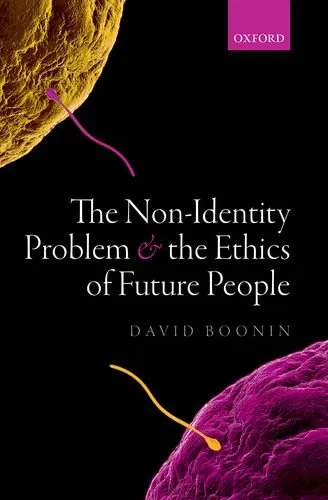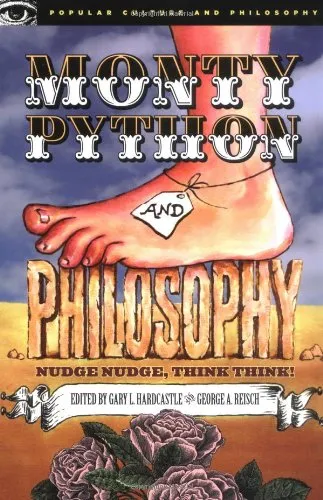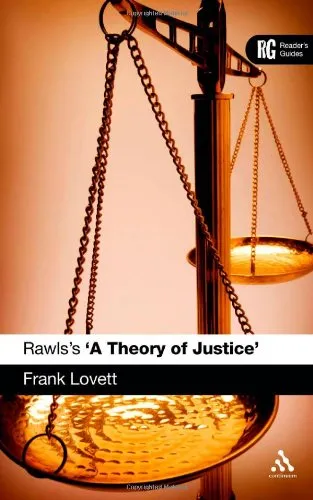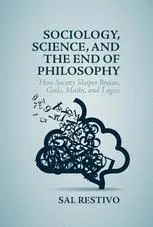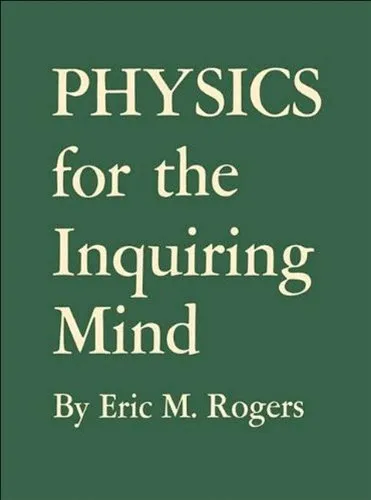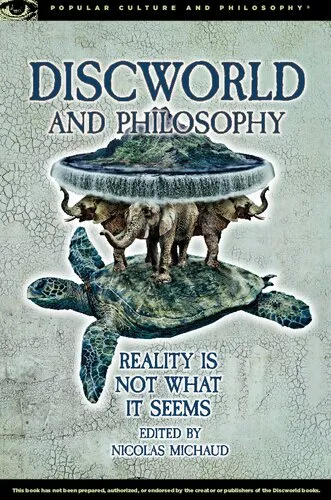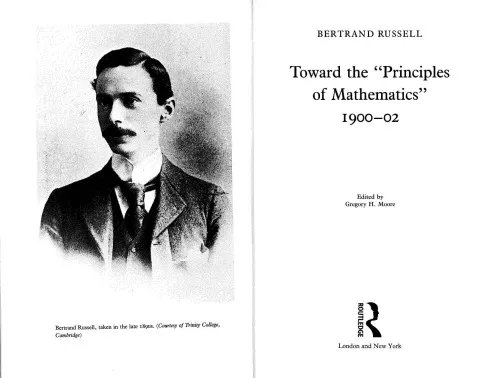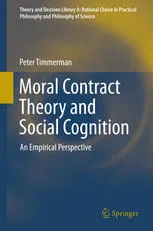The Non-Identity Problem and the Ethics of Future People
4.0
بر اساس نظر کاربران

شما میتونید سوالاتتون در باره کتاب رو از هوش مصنوعیش بعد از ورود بپرسید
هر دانلود یا پرسش از هوش مصنوعی 2 امتیاز لازم دارد، برای بدست آوردن امتیاز رایگان، به صفحه ی راهنمای امتیازات سر بزنید و یک سری کار ارزشمند انجام بدینکتاب های مرتبط:
معرفی دقیق کتاب "The Non-Identity Problem and the Ethics of Future People"
کتاب "The Non-Identity Problem and the Ethics of Future People" نوشتهی دیوید بنین به بررسی یکی از عمیقترین و پیچیدهترین مسائل اخلاقی در فلسفه معاصر میپردازد: Non-Identity Problem. این مسأله مباحث مربوط به مسئولیت اخلاقی ما نسبت به نسلهای آینده و تأثیر تصمیمات ما بر وجود آنها و کیفیت زندگیشان را مطرح میکند. در این کتاب، نویسنده به روشی دقیق و سیستماتیک به تحلیل این مشکل پرداخته و پیشنهاداتی برای پاسخ دادن به آن ارائه میدهد.
خلاصه کتاب
در این اثر، دیوید بنین با استفاده از مفاهیم فلسفی و ابزارهای منطقی به بررسی این پرسش میپردازد که چگونه تصمیمات ما در حال حاضر میتوانند بر وجود و هویت نسلهای آینده تأثیر بگذارند. Non-Identity Problem استدلال میکند که در بسیاری از موارد، اعمال ما به جای آسیبزدن به افراد موجود، بر هویت افراد آینده تأثیر میگذارد و حتی منجر به ظهور افراد خاصی میشود که در غیر این صورت وجود نداشتند.
نویسنده مسائلی مانند تولیدمثل، تغییرات اقلیمی، و سیاستگذاریهای بلندمدت را تحلیل کرده و به این نتیجه میرسد که Non-Identity Problem چالشی جدی برای بسیاری از نظریههای اخلاقی است. او این مشکل را هم از دیدگاه کانتی و هم دیدگاه فایدهگرایی بررسی میکند و نشان میدهد که هر دو به نوعی با مشکلاتی روبرو هستند که ناشی از این «پارادوکس هویت» هستند.
نکات کلیدی کتاب
- تمرکز بر اخلاق بیننسلی و نقشی که Non-Identity Problem در تدوین این اخلاق دارد.
- ارائه یک چارچوب مفهومی برای درک دقیقتر چالشهای مربوط به تاثیر تصمیمات ما بر نسلهای بعدی.
- بحث درباره ناسازگاریِ نظریههای اخلاقی سنتی با مسائل مربوط به آینده بشریت.
- تحلیل نمونههای واقعی و مرتبط مانند سیاستهای زیستمحیطی و تصمیمگیریهای مربوط به سلامت عمومی.
- تاکید بر اهمیت این که اخلاق تولیدمثل چگونه میتواند با کمک Non-Identity Problem بهبود یابد.
جملات معروف از کتاب
"اگر اعمال ما منجر به وجود آمدن فردی شود که در غیر این صورت وجود نداشت، آیا میتوان گفت که او مورد آسیب قرار گرفته است؟"
"Non-Identity Problem نه تنها یک معمای فلسفی است بلکه یک واقعیت عملی با تأثیرات گسترده بر سیاستگذاریها و اخلاق عمومی است."
چرا این کتاب مهم است؟
کتاب The Non-Identity Problem and the Ethics of Future People یکی از مهمترین آثار فلسفی در زمینه اخلاق آیندهنگر و نسلی است. این کتاب به ما یادآوری میکند که بسیاری از تصمیمات ما نه تنها بر حال حاضر بلکه بر نسلهای آینده نیز تأثیرگذارند. در جهانی که با چالشهایی مثل تغییرات اقلیمی، رشد جمعیت، و پیشرفتهای تکنولوژیکی روبرو هستیم، درک این مفاهیم میتواند راهگشا و مفید باشد.
این اثر کمک میکند تا در سیاستگذاریها، دیدگاه آگاهانهتری نسبت به پیامدهای بلندمدت اعمال و تصمیمات خود داشته باشیم. همچنین، خوانندگان کتاب با خواندن آن میتوانند درکی عمیقتر از وظایف اخلاقی خود نسبت به آینده کسب کرده و رویکرد متفاوتی نسبت به مسائل اجتماعی و بیننسلی اتخاذ کنند.
Introduction to "The Non-Identity Problem and the Ethics of Future People"
David Boonin’s book, The Non-Identity Problem and the Ethics of Future People, delves into one of the most intriguing and complex ethical dilemmas in modern philosophy: the non-identity problem. This problem forces us to confront a critical question—how do our actions today morally affect people who will exist in the future, particularly when those actions determine who those very future individuals will be? As environmental concerns, reproductive technologies, and intergenerational justice debates continue to shape public discourse, this book provides essential philosophical insights into how we evaluate these issues ethically.
The non-identity problem arises when decisions we make alter the identity of the people who will exist in the future. For example, choosing to act (or not act) on environmental crises does not merely impact living people—it shapes the context for future generations’ existence, influencing the people they will become. Despite its theoretical roots, the problem has profound implications for real-world moral and policy decisions.
In this book, Boonin systematically addresses the intellectual challenges surrounding this conundrum. Thought-provoking and deeply analytical, the work explores new ethical frameworks and applies existing theories to groundbreaking questions about how we balance our duties to current populations with those to future individuals. Through rigorous exploration, the book not only illuminates the theoretical underpinnings of this dilemma but also provides practical guidance for engaging with the ethics of our actions today and their consequences for tomorrow.
Detailed Summary of the Book
The book is meticulously divided into several core sections, each unraveling a layer of the non-identity problem and its ethical implications. Boonin begins by clearly defining the problem and situating it within the broader field of moral philosophy. He adeptly explains how the non-identity problem challenges our conventional approaches to ethics, including utilitarianism, deontology, and contractarianism.
Throughout the book, Boonin introduces an array of thought experiments to illustrate the practical relevance of the problem. For instance, he examines cases such as reproductive choices, genetic engineering, and environmental policies. One recurring theme is the puzzle of how to evaluate scenarios where harm can only be prevented by actions that affect the very identity of people yet to be born. Can we meaningfully say someone has been harmed if an alternative choice would result in a completely different person existing?
Boonin also addresses major critiques and counterarguments. The book thoroughly evaluates objections that question whether the non-identity problem is a genuine moral problem. Boonin’s careful analysis of these debates strengthens his case that understanding this problem is essential for issues like climate justice and intergenerational ethics.
Key Takeaways
- The non-identity problem fundamentally changes how we think about moral obligations to future generations.
- Choosing actions that define the very existence of future individuals creates unique ethical challenges that cannot be fully resolved using traditional moral frameworks.
- Practical dilemmas like climate change, reproductive technologies, and genetic ethics must be approached with a nuanced understanding of identity and moral harm.
- The book provides critical tools for policymakers, ethicists, and individuals to handle decisions with long-term consequences responsibly.
Famous Quotes from the Book
"The puzzle of the non-identity problem, at its core, is a puzzle about the value of existence itself."
"Our actions today do not merely influence the world; they shape the persons yet to come into it. This places a profound responsibility on those of us alive in the present."
"To solve the non-identity problem is not merely an academic exercise—it is to decide the moral foundation upon which we build the future."
Why This Book Matters
The Non-Identity Problem and the Ethics of Future People is more than an exploration of abstract philosophical questions; it is a call to carefully reconsider how we weigh our responsibilities to those who are not yet born. As the challenges of climate change, environmental depletion, and advancements in biotechnology demand urgent action, the ideas presented in this book are invaluable.
By offering a comprehensive exploration of one of modern philosophy’s most perplexing dilemmas, David Boonin provides readers with the tools to think critically and compassionately about how today’s choices shape tomorrow’s world. The book’s relevance extends beyond academia, serving as a guiding text for ethicists, policymakers, scientists, and anyone wrestling with the moral complexities of actions that reverberate across generations.
دانلود رایگان مستقیم
شما میتونید سوالاتتون در باره کتاب رو از هوش مصنوعیش بعد از ورود بپرسید
دسترسی به کتابها از طریق پلتفرمهای قانونی و کتابخانههای عمومی نه تنها از حقوق نویسندگان و ناشران حمایت میکند، بلکه به پایداری فرهنگ کتابخوانی نیز کمک میرساند. پیش از دانلود، لحظهای به بررسی این گزینهها فکر کنید.
این کتاب رو در پلتفرم های دیگه ببینید
WorldCat به شما کمک میکنه تا کتاب ها رو در کتابخانه های سراسر دنیا پیدا کنید
امتیازها، نظرات تخصصی و صحبت ها درباره کتاب را در Goodreads ببینید
کتابهای کمیاب یا دست دوم را در AbeBooks پیدا کنید و بخرید
1385
بازدید4.0
امتیاز0
نظر98%
رضایتنظرات:
4.0
بر اساس 0 نظر کاربران
Questions & Answers
Ask questions about this book or help others by answering
No questions yet. Be the first to ask!
